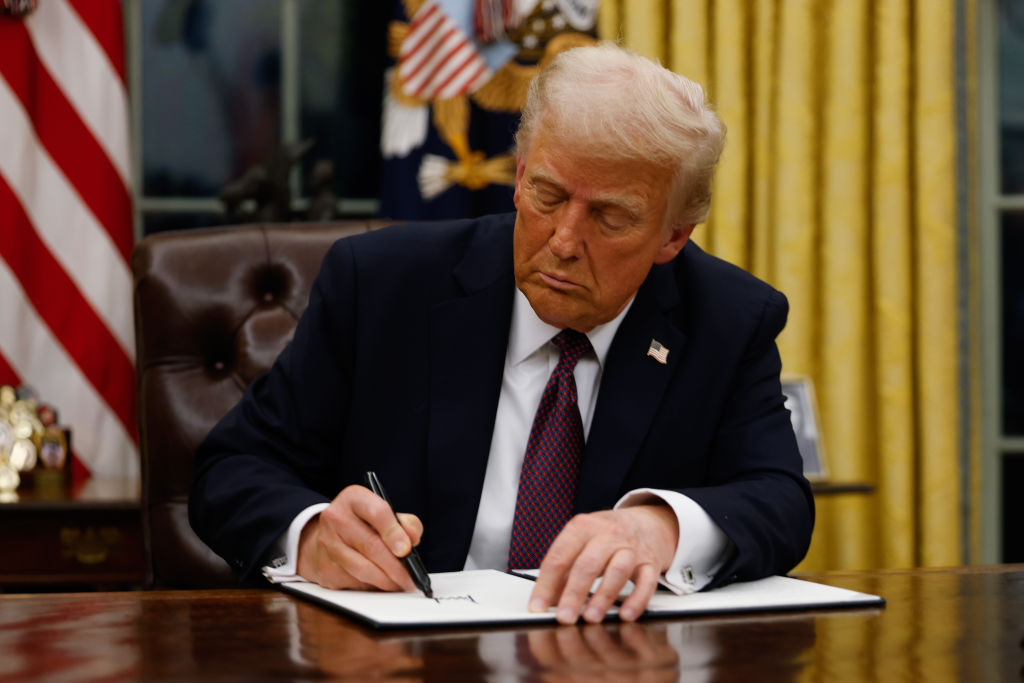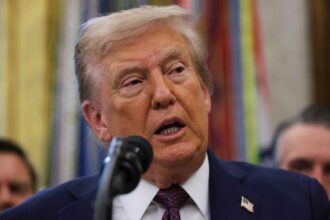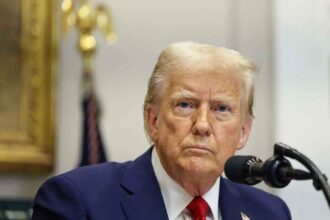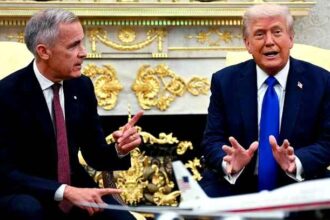President Donald Trump announced on Monday that his administration will move forward with tariffs on imports from Canada and Mexico next month. The decision ended a monthlong suspension of the planned taxes, which could impact economic growth and drive higher inflation.
“We’re on time with the tariffs, and it seems like that’s moving along very rapidly,” Trump stated during a press conference alongside French President Emmanuel Macron.
The U.S. president confirmed that his reciprocal tariff strategy remains on schedule and that the new duties will apply to imports from America’s two largest trading partners as early as April.
Trump argues that these import taxes will counter unfair trade practices that have harmed U.S. manufacturing. While critics warn of rising consumer costs, Trump insists the tariffs will generate revenue and create jobs.
“Our country will be extremely liquid and rich again,” he said.
Many economists, however, predict that the burden of these taxes will fall on American consumers and businesses. Retailers and manufacturers, including automakers, could face higher costs due to increased prices for raw materials like steel and aluminum.
Related: Trump calls Zelenskiy a ‘dictator’ and tells him to move fast or lose Ukraine
Mexican President Claudia Sheinbaum remains optimistic about reaching a resolution before the tariffs take effect. She emphasized ongoing discussions between both governments, aiming for a deal by Friday.
“We need to complete this agreement; I believe we’re in a place to do it,” Sheinbaum said.
She also highlighted the need for the U.S. to address drug consumption within its borders rather than solely focusing on production in Mexico.
Meanwhile, Canada has taken steps to ease tensions, including appointing a special czar to address drug-related concerns raised by the U.S. government. However, retaliatory tariffs from both nations remain a possibility, which could escalate into a larger trade conflict.
French President Emmanuel Macron expressed concerns over the potential trade war. In a televised interview, he said he urged Trump to reconsider, emphasizing the importance of economic cooperation.
“We don’t need a trade war,” Macron stated. “We need more prosperity together.”
Businesses and investors are also reacting with uncertainty. Companies like Walmart have warned about price hikes, while the University of Michigan’s consumer sentiment index saw a significant drop in response to tariff fears.
Also Read: Lawmakers will reissue subpoenas to Fani Willis for documents and testimony about Trump prosecution
Despite ongoing trade negotiations with Canada and Mexico, Trump confirmed that the 30-day tariff suspension will end, with new import taxes set to begin in April. The U.S. will impose a 25% tariff on Mexican imports and additional taxes on Canadian goods, including a 10% tariff on energy products such as oil and electricity.
Trump insists the tariffs are meant to push Mexico and Canada to take stronger action on illegal immigration and drug smuggling, particularly fentanyl. While Canada has little involvement in fentanyl trafficking, its government has taken steps to address U.S. concerns. Meanwhile, Mexico has deployed 10,000 National Guard members to its border in response.
If fully implemented, these tariffs could have significant economic consequences. A Yale University Budget Lab study estimated that the Canadian and Mexican tariffs could lower average U.S. incomes by over $1,170 annually.












